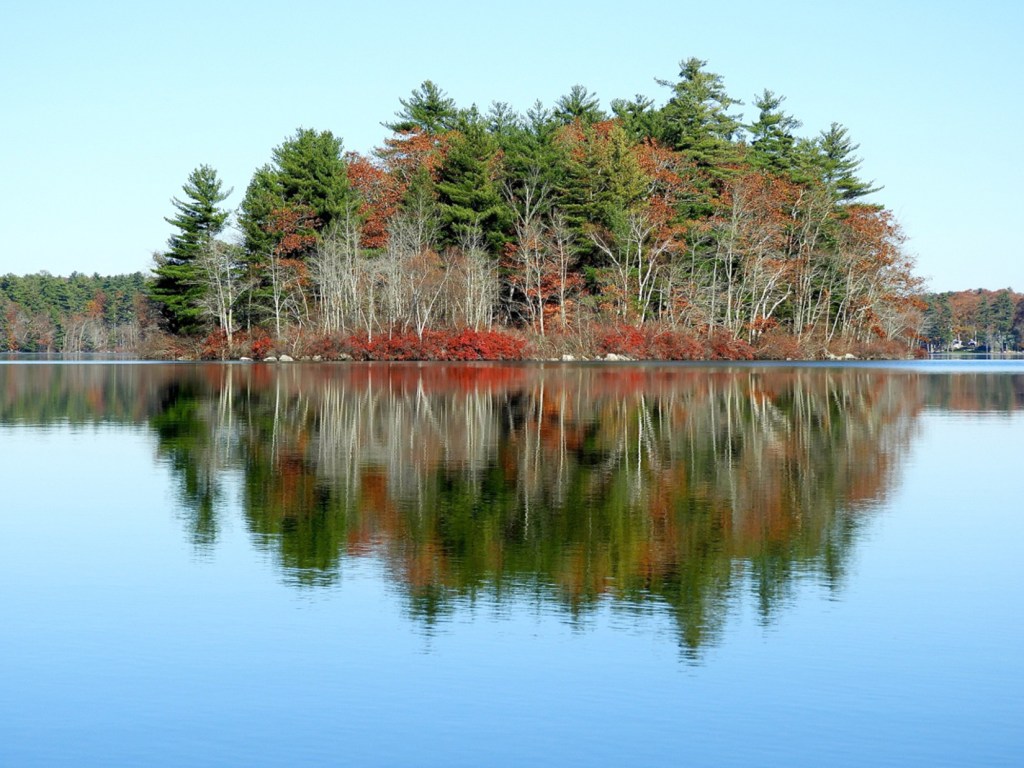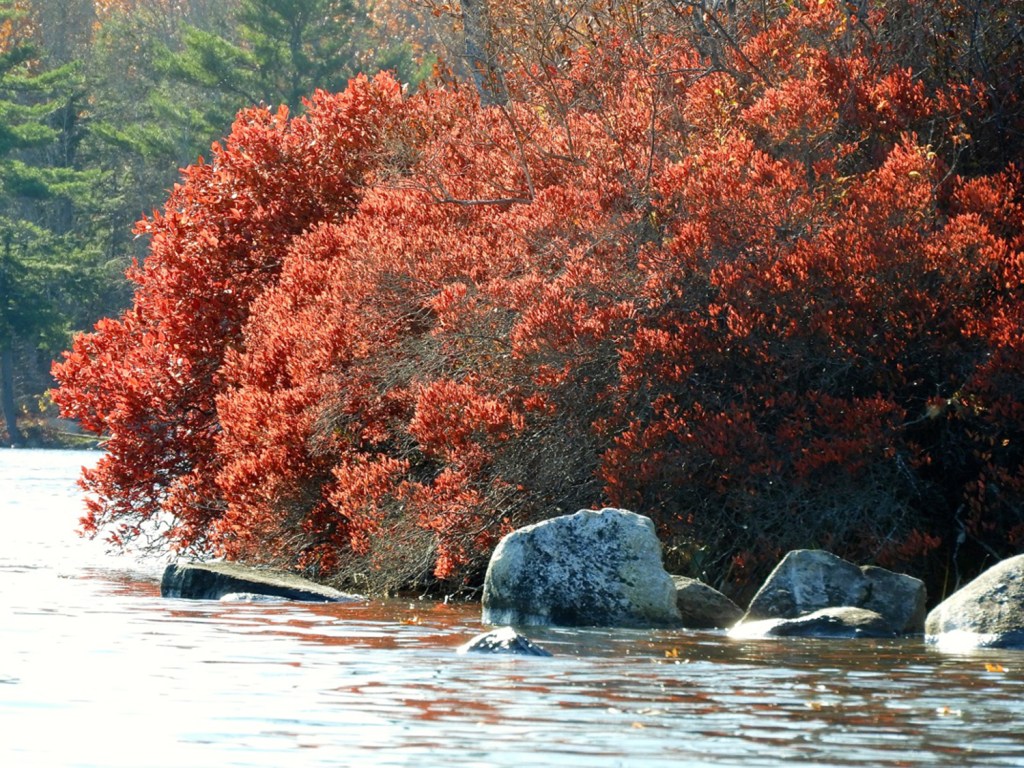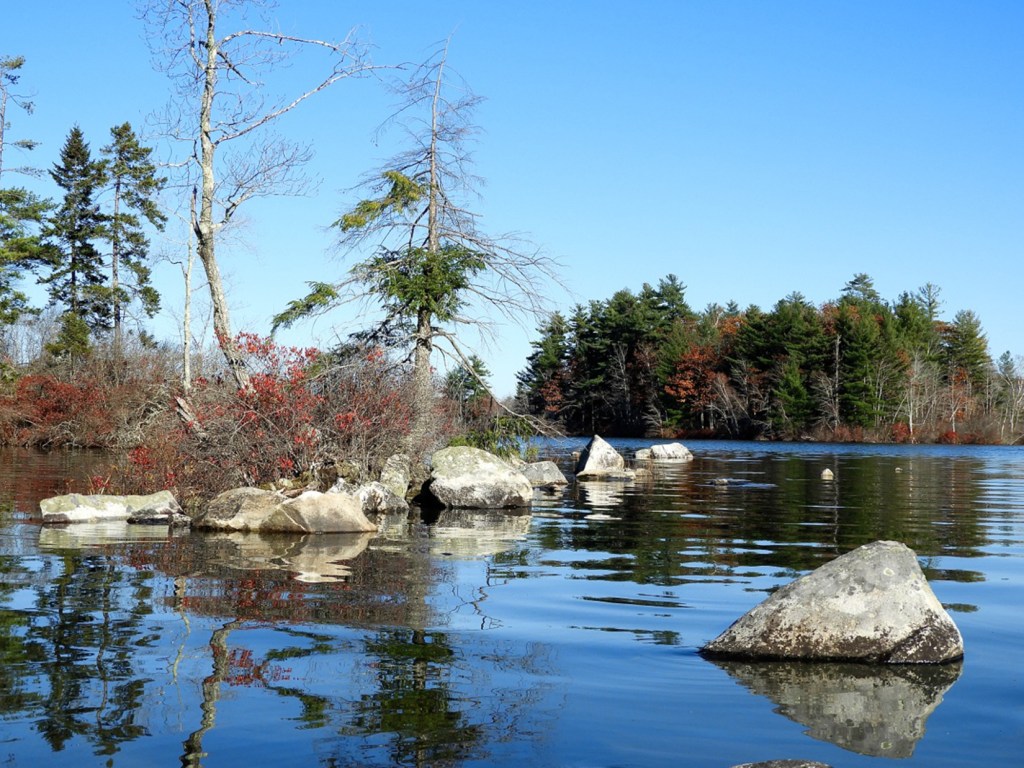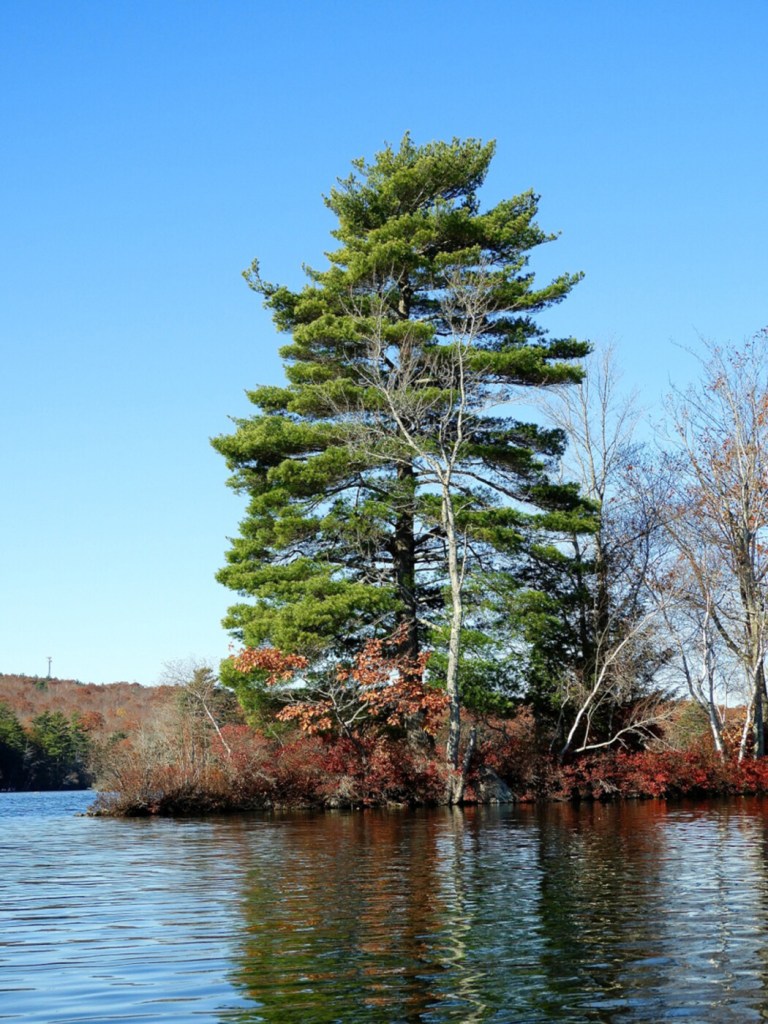Three hours of exploring Togus Pond on a cloudless mid-November day will help you put the exclamation point on another wonderful paddling season.
Remember those winter days as a kid when you got up and heard the no-school announcements on the radio, and your school was listed? A November paddle combines the joy of unfettered youth with boundless possibilities. You really do sneak one in when you wet your paddles on the perfect November day.
Togus Pond is ringed by clusters of cottages, but seven beautiful islands in the western half of the pond make it a great place to poke around and bask in the glory of late-season natural wonders. A pair of bald eagles frolicked with each other above the water. Mallards lifted off from shaded coves. Loon calls echoed down through the channels between the islands. A few sandpipers skittered along the shoreline.
We stopped to take pictures of the bleached-white root system of a large overturned oak tree. As we were focusing on the intricate mosaic of twisted, gnarled roots a blue heron swooped up into the air from its perch atop the roots. We had not noticed it in the excitement of capturing the artistry of the whorl of roots. Was this the last heron left on the lake, stubbornly delaying the inevitable seasonal shift to warmer climes to the south?
Herons seen late in the season are most often juveniles who have not quite figured out the implications of the changing seasons. Some may even try to winter over in far southern coastal Maine, often with poor results. Wiser Maine blue herons have been found as far south as Haiti with big smiles on their faces.
The islands vary in size, with two large ones mixed with smaller islets. Two of the islets had rings of boulders along their shorelines providing unique reflections in the mirror calm water. The brilliant red leaves of highbush blueberry pulsated in the low afternoon sun. We nosed our canoe into a thicket of red winterberries, dazzling against the deep blue sky. A northerly breeze suddenly sprang up and pushed our canoe down along the shore and away from the thicket as we scrambled to take pictures of the berries.
As we headed toward Route 3 at the northern end of the pond we kept encountering that same blue heron. At our approach it would gracefully lift up and settle down 50 yards ahead of us on yet another sun-splashed spot. We took a lot of heron pictures.
With high water you can paddle through the concrete culvert under Route 3 into a small marsh north of the road. Next time you drive Route 3 from Augusta to Belfast you will have a smile on your face wondering if there are any paddlers in that culvert as you pass over it.
Consult the DeLorme Maine Atlas and Gazetteer (map No. 13) for help in getting to the new public boat launch on Route 105, about 7 miles east of downtown Augusta. There is ample room to park and easy access to launch your canoe.
Little Togus Pond, on the south side of Route 105, is another excellent paddle anytime of year. There is very little development on this pond, but there are no islands to explore.
The name Togus derives from the Abenaki phrase, Worromontogus. While there is not consensus on the exact meaning of the phrase, it is thought that it may refer to the many springs in the area. The 134-room Togus Springs Hotel was built in 1858 on the grounds of what is today the Togus VA Medical Center a few miles west of the pond. After closing a few years later the hotel became part of the first federal veterans facility to open in America.
Michael Perry is the former director of the L.L. Bean Outdoor Discovery Schools, and founder of Dreams Unlimited, specializing in inspiring outdoor slide programs for civic groups, businesses, and schools. Contact: michaelj_perry@comcast.net
Send questions/comments to the editors.







